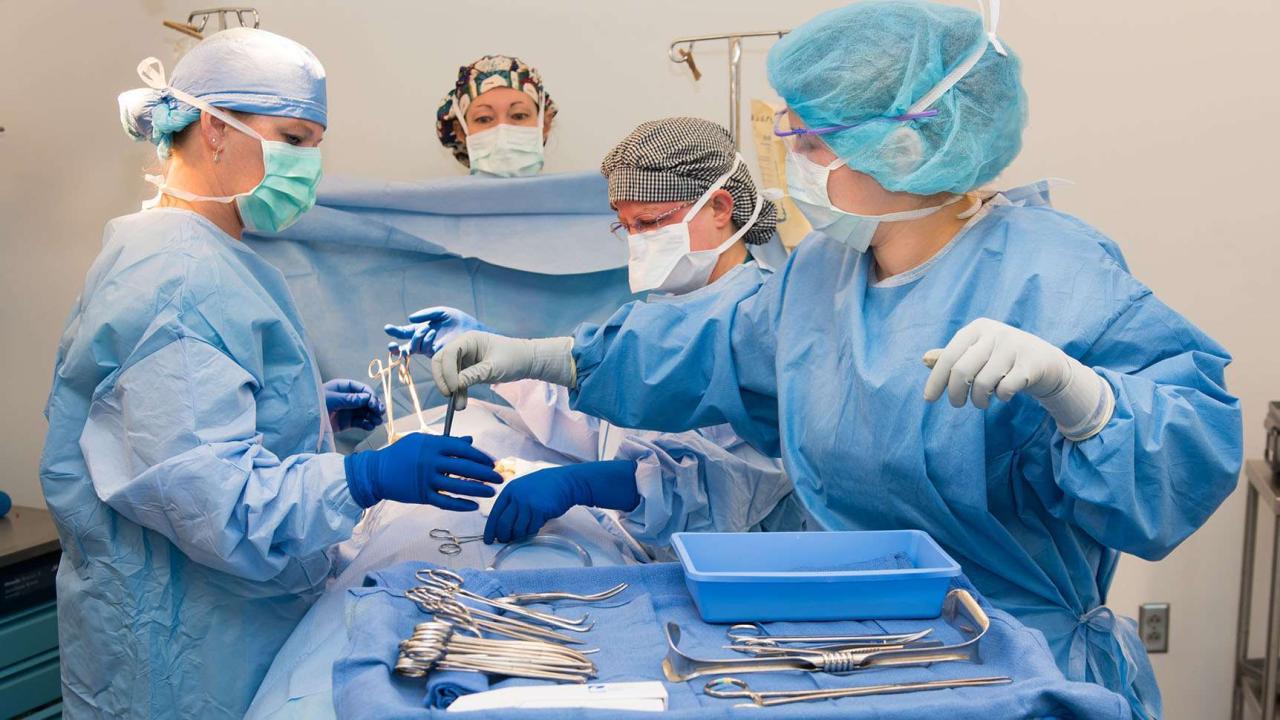Accredited surgical tech programs near me with clinical rotations offer a fantastic pathway to a rewarding career. This guide will walk you through finding the right program, understanding the curriculum, navigating the application process, and exploring your future career options. We’ll cover everything from accreditation bodies and clinical rotation experiences to program costs and financial aid opportunities, equipping you with the knowledge to make informed decisions about your education.
Choosing a surgical technology program is a significant step, demanding careful consideration of factors like program accreditation, clinical experience opportunities, curriculum structure, and career prospects. This comprehensive guide aims to clarify these aspects, providing you with the information needed to select a program that best aligns with your aspirations and goals. We’ll delve into the specifics of program requirements, financial aid options, and the support systems available to students, ensuring a smooth transition into your chosen career path.
Finding Accredited Surgical Technology Programs
Locating an accredited surgical technology program requires diligent research. Several resources can assist in this process, and understanding accreditation standards is crucial for ensuring a quality education.
Accredited Program Locators
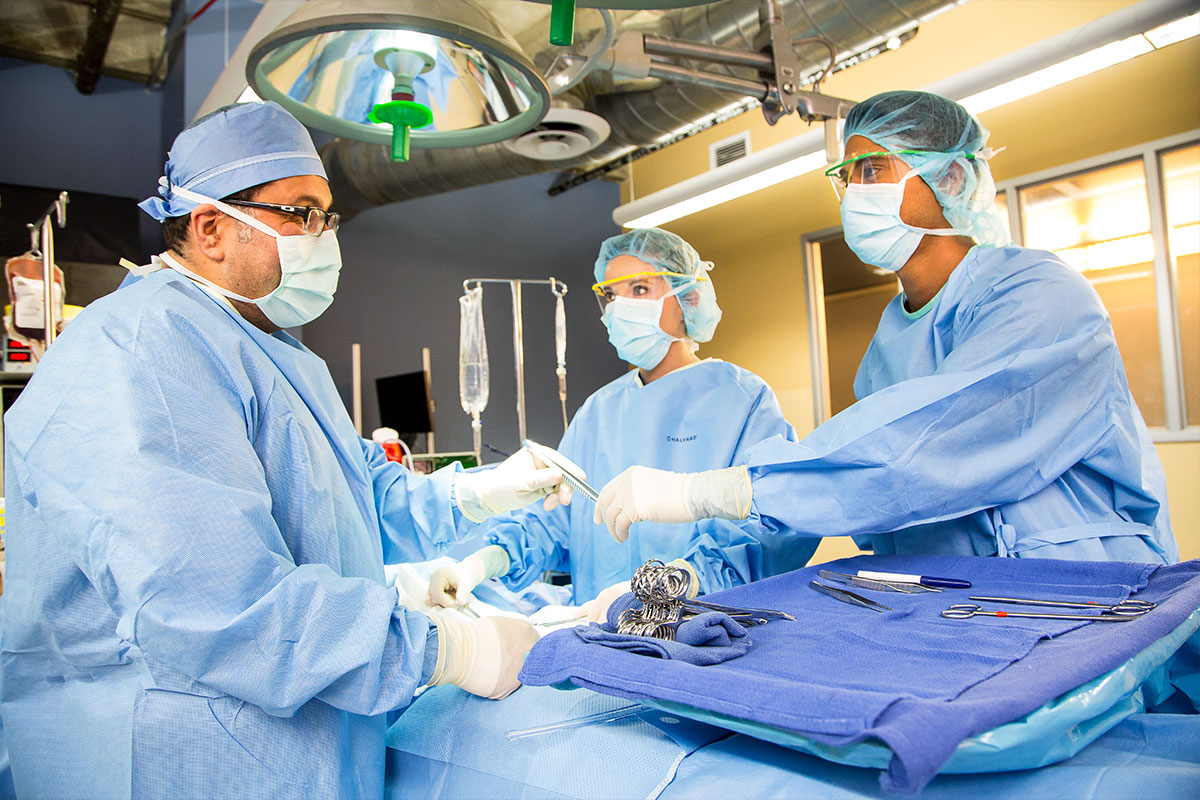
Several websites and organizations maintain databases of accredited surgical technology programs. These resources provide valuable information, including program details, contact information, and accreditation status.
- The Commission on Accreditation of Allied Health Education Programs (CAAHEP): CAAHEP is a primary accrediting body for many allied health professions, including surgical technology. Their website provides a searchable database of accredited programs.
- The Accreditation Review Council on Education in Surgical Technology and Surgical Assisting (ARC/STSA): ARC/STSA is another significant accrediting body specifically for surgical technology and surgical assisting programs. Their website also offers a search function for accredited programs.
- State Boards of Allied Health: Many states have their own boards that regulate and list approved allied health programs within their jurisdiction. Check your state’s licensing board website for relevant information.
Accreditation Body Comparison, Accredited surgical tech programs near me with clinical rotations
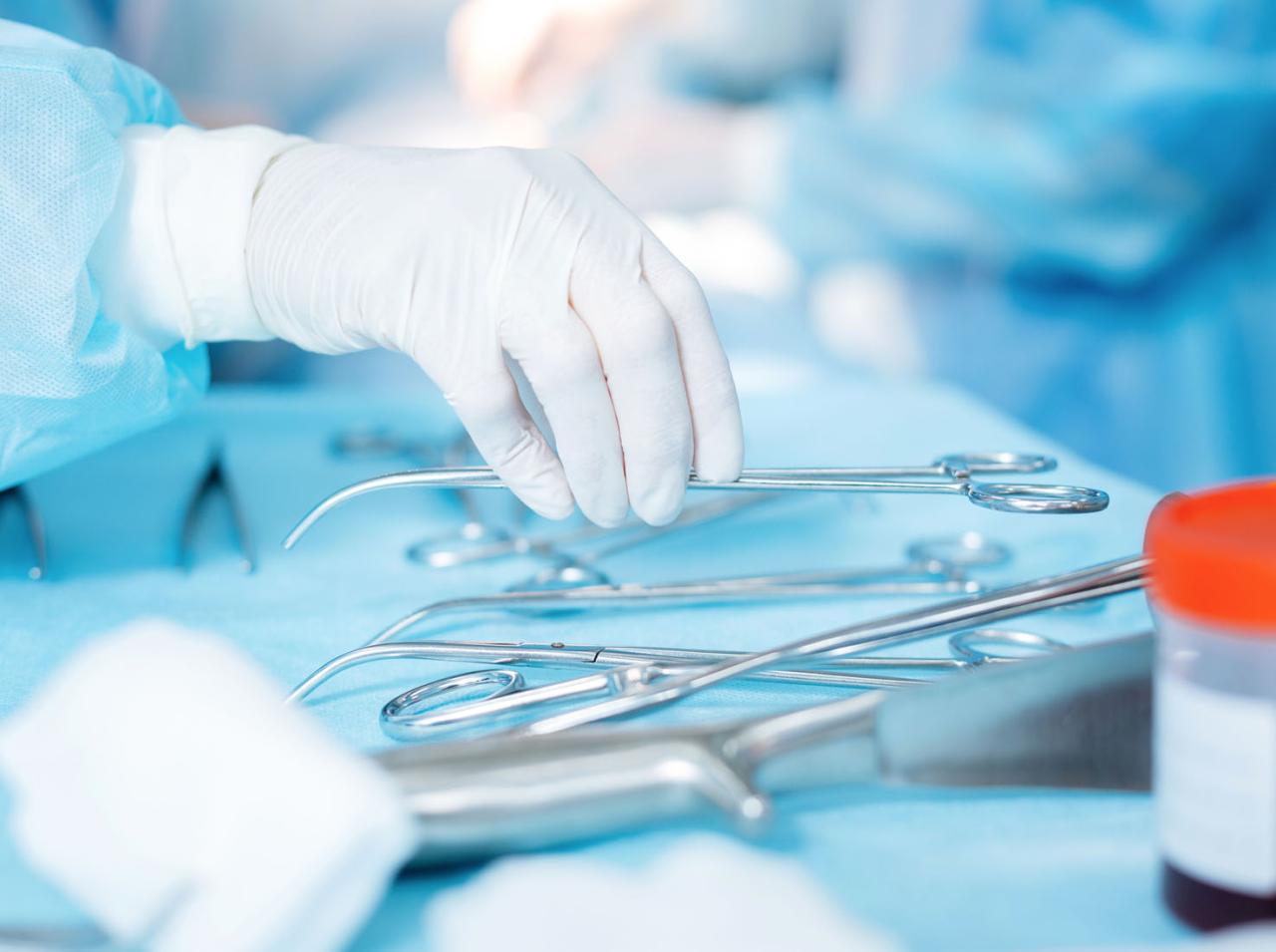
CAAHEP and ARC/STSA are the two main accrediting bodies for surgical technology programs in the United States. Both organizations have rigorous standards, but there might be slight differences in their specific requirements and emphasis.
| Accreditation Body | Focus | Program Standards |
|---|---|---|
| CAAHEP | Broader allied health accreditation | Comprehensive standards covering curriculum, faculty, facilities, and student outcomes. |
| ARC/STSA | Specific to surgical technology and surgical assisting | Standards tailored to the unique needs and competencies of surgical technologists. |
Accreditation Criteria
Accreditation bodies assess programs based on several key criteria. These criteria ensure that programs meet established quality standards and prepare graduates for successful careers.
Finding accredited surgical tech programs near you with clinical rotations is key to a successful career. It’s a demanding field, requiring both hands-on skills and the ability to handle pressure. But if coding’s more your thing, maybe check out this link for info on becoming a full stack developer , a completely different but equally rewarding path.
However, if you’re set on surgical technology, remember to prioritize programs with strong clinical affiliations for the best experience.
- Curriculum: The curriculum must comprehensively cover surgical technology principles and practices.
- Faculty Qualifications: Instructors must possess appropriate education, experience, and certifications.
- Facilities and Equipment: Programs must have adequate facilities and equipment to provide hands-on training.
- Clinical Rotations: Programs must provide sufficient clinical experiences in diverse surgical settings.
- Student Outcomes: Accreditation bodies track graduate success rates in terms of job placement and professional certification.
Accredited Programs Near [USER LOCATION]
The following table provides examples of accredited surgical technology programs. Note that this is not an exhaustive list and program availability varies by location.
| Program Name | Location | Accreditation Body | Contact Information |
|---|---|---|---|
| Example Program 1 | [City, State] | CAAHEP | [Phone number, email address] |
| Example Program 2 | [City, State] | ARC/STSA | [Phone number, email address] |
| Example Program 3 | [City, State] | CAAHEP | [Phone number, email address] |
| Example Program 4 | [City, State] | ARC/STSA | [Phone number, email address] |
Clinical Rotation Aspects
Clinical rotations are an indispensable component of surgical technology education, bridging theoretical knowledge with practical experience in a real-world surgical setting. They allow students to apply classroom learning, develop essential skills, and gain valuable hands-on experience under the supervision of experienced surgical professionals.
Okay, so you’re hunting down accredited surgical tech programs near you with those crucial clinical rotations? That’s awesome! Finding the right program is a big deal, almost as big as choosing the perfect tool for your next project, like figuring out finding the right AI voice generator for podcasting if you’re thinking of branching out. Back to surgical tech – remember to check program accreditation and the quality of their clinical partnerships for the best learning experience.
Importance of Clinical Rotations
Clinical rotations provide students with invaluable experience in sterile technique, surgical instrument identification, patient care, and teamwork within a surgical environment. This hands-on experience is crucial for building confidence and competency before entering the professional workforce.
Finding accredited surgical tech programs near you with clinical rotations is key to a successful career. It’s all about hands-on experience, and you’ll want to make sure the program’s solid. Speaking of solid performances, check out the highlights from the cricket match – India vs Australia, 5th Test, Day 2 Highlights: Rishabh Pant’s – before getting back to researching those surgical tech programs.
Remember, a good program will help you nail those clinical rotations.
Types of Clinical Experiences
Accredited programs offer diverse clinical experiences to expose students to a broad range of surgical specialties and procedures. This exposure prepares them for the variety of surgical settings they might encounter in their careers.
- General Surgery
- Orthopedics
- Cardiothoracic Surgery
- Neurosurgery
- Gynecology
- Urology
Clinical Rotation Structures
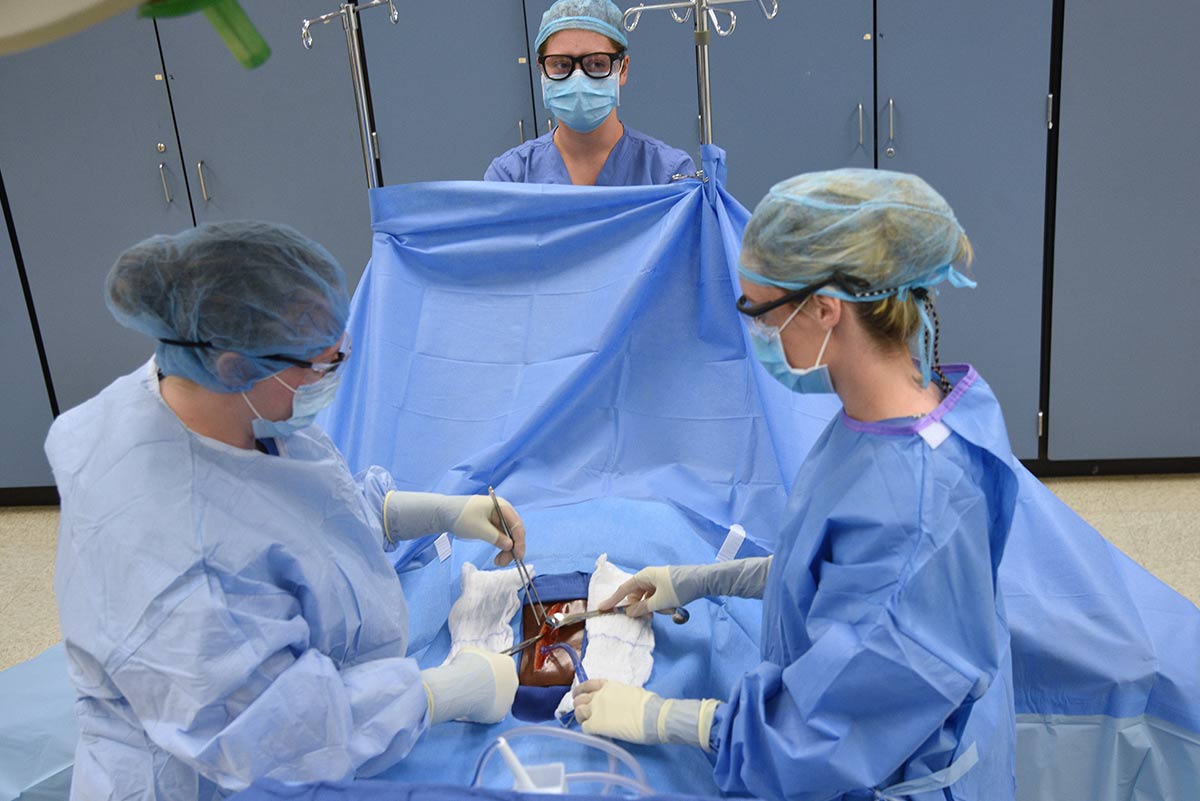
The structure of clinical rotations can vary between programs. Some programs might offer a block rotation system, where students spend several weeks in a single surgical setting, while others may adopt a rotating system, where students move between different surgical areas more frequently.
Surgical Technology Student Responsibilities During Clinical Rotations
During clinical rotations, surgical technology students undertake various responsibilities, learning from experienced surgical professionals.
- Preparing the operating room
- Assisting the surgical team
- Maintaining sterile technique
- Handling and organizing surgical instruments
- Passing instruments to the surgeon
- Monitoring the patient’s vital signs
- Maintaining a safe and organized surgical environment
Final Summary: Accredited Surgical Tech Programs Near Me With Clinical Rotations
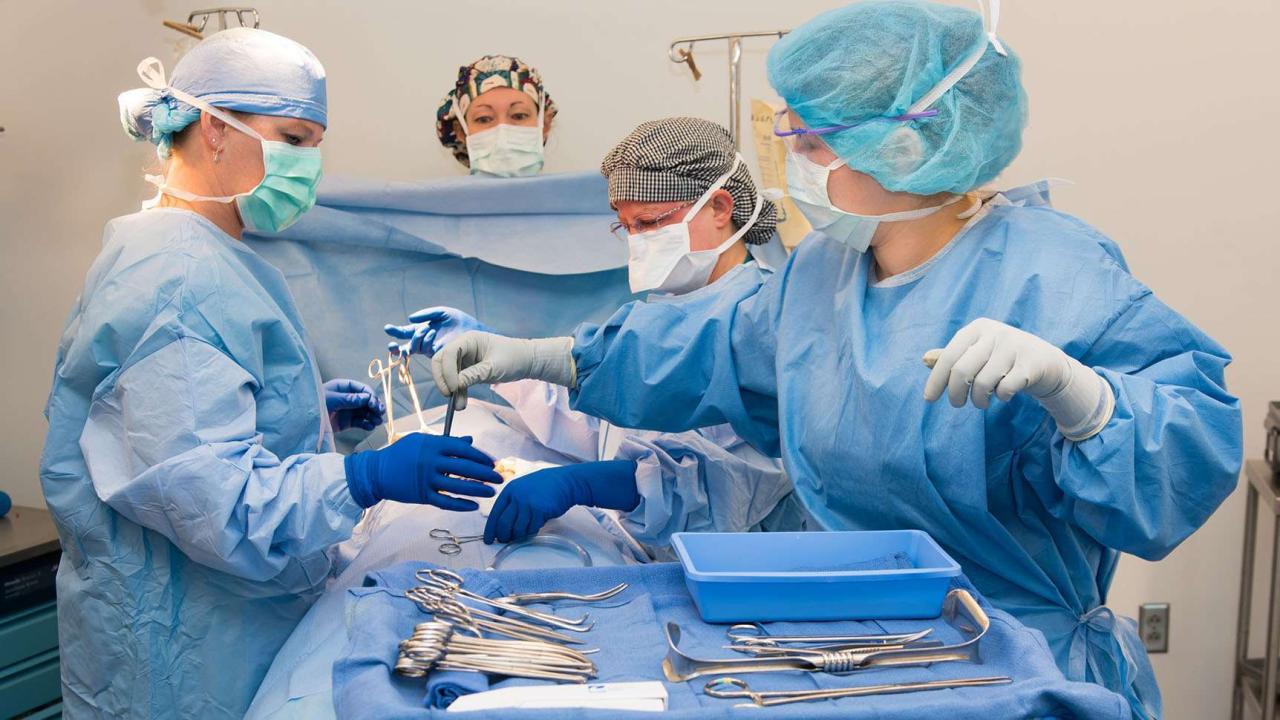
Landing your dream job as a surgical technologist begins with selecting the right accredited program. Remember to carefully weigh factors like location, accreditation, clinical rotations, curriculum, and financial aid when making your decision. By thoroughly researching your options and utilizing the resources available, you can confidently embark on a successful and fulfilling career in surgical technology. Good luck!
Questions Often Asked
What is the difference between a diploma and an associate’s degree in surgical technology?
A diploma program is typically shorter and more focused on practical skills, while an associate’s degree program provides a broader education with more general education requirements.
How long does it typically take to complete a surgical technology program?
Program length varies, but most diploma programs last around 1-2 years, while associate’s degree programs usually take 2 years.
Are there any prerequisites for applying to surgical technology programs?
Prerequisites vary by program but often include a high school diploma or GED, a minimum GPA, and possibly prerequisite courses like anatomy and physiology.
What kind of financial aid is available for surgical technology students?
Many financial aid options exist, including federal student loans, grants, scholarships, and institutional aid. Check with individual programs for specific opportunities.
What are the job prospects after graduating from a surgical technology program?
Job prospects are generally good for surgical technologists, with consistent demand across various healthcare settings. Accreditation of your program significantly improves your job placement chances.
